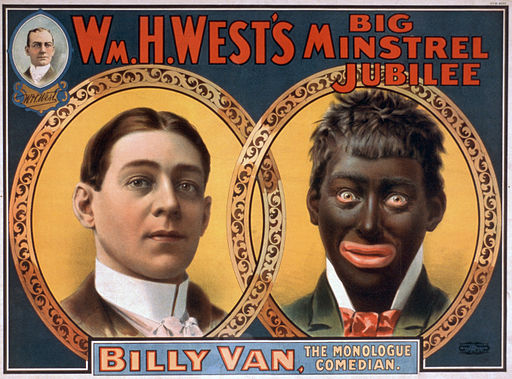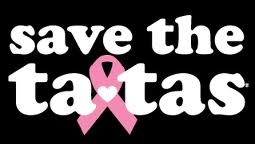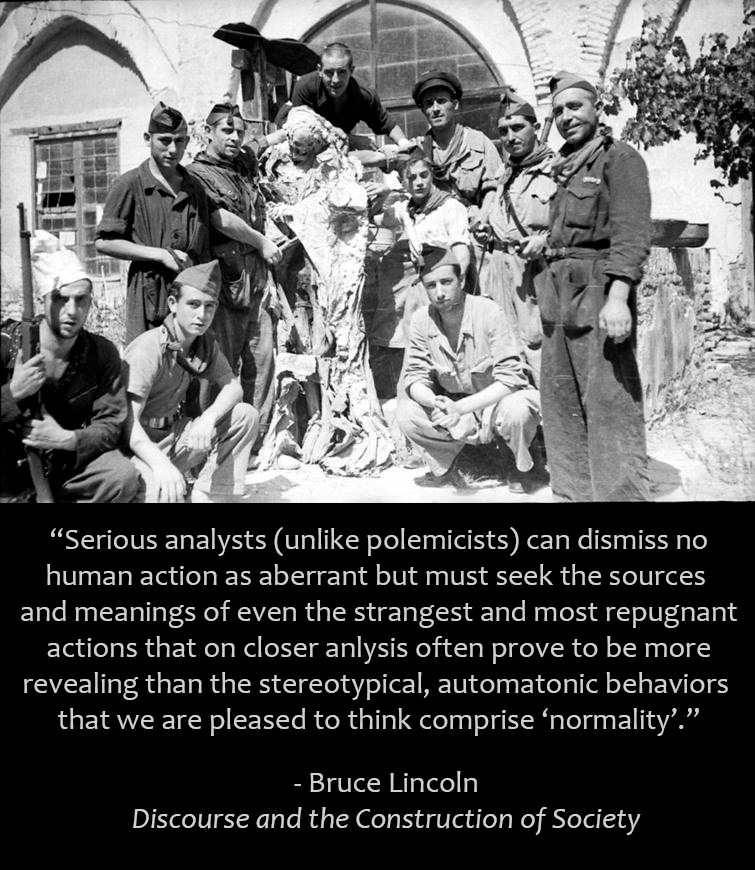 A culture is not a costume. That sentiment has become a common theme on social media and student newspapers (here from James Madison University and here from Chapman University, for example) with the approach of Halloween. The sentiment makes sense with people, primarily identified with a majority community, masquerading for fun as a stereotyped member of a minority. The history of using minority images for entertainment and benefit of majorities is long and painful, including the blackface minstrel shows of a century ago. Such costumes reinforce the costumed person’s majority status as he/she masquerades as something other, thus demonstrating differences in power.
A culture is not a costume. That sentiment has become a common theme on social media and student newspapers (here from James Madison University and here from Chapman University, for example) with the approach of Halloween. The sentiment makes sense with people, primarily identified with a majority community, masquerading for fun as a stereotyped member of a minority. The history of using minority images for entertainment and benefit of majorities is long and painful, including the blackface minstrel shows of a century ago. Such costumes reinforce the costumed person’s majority status as he/she masquerades as something other, thus demonstrating differences in power.
However, accusations of cultural appropriation also can become assertions of power and control from some in minority groups. In the video embedded below, the narrator describes cultural appropriation as “when you hijack a part of a culture without permission, not out of respect or tribute.” Continue reading “What Should You Be on Halloween?”


 Learn
Learn  “A war against Christianity,” a friend on Facebook asserted, as he pointed to examples in the United States and around the world. The shooting at Umpqua Community College recently and the various occasions when ISIS has executed people identified as Christians provided prime examples. Others making similar claims point to shifts in US policy, including the removal of the Ten Commandments from schools and courthouses, restrictions on official prayer at public schools, and movements to remove “God” from the Pledge and US money.
“A war against Christianity,” a friend on Facebook asserted, as he pointed to examples in the United States and around the world. The shooting at Umpqua Community College recently and the various occasions when ISIS has executed people identified as Christians provided prime examples. Others making similar claims point to shifts in US policy, including the removal of the Ten Commandments from schools and courthouses, restrictions on official prayer at public schools, and movements to remove “God” from the Pledge and US money.  Constructing and maintaining a group, a community, requires significant effort, and at times that effort generates disagreements. In India, an organization announced this week that they were
Constructing and maintaining a group, a community, requires significant effort, and at times that effort generates disagreements. In India, an organization announced this week that they were 
 As a parent, I feel that I am constantly thinking about what can harm my children. I remind them to make eye contact with stopped cars as they walk across busy intersections, to take small bites and chew their food slowly as they eat, to not tip back in their chairs at the table, and so on. But I must admit that there is something unusually arresting about hearing my children talk about the “code red” drills that occur at their elementary school. This is the term that the school uses to cue the children and staff to start a series of behaviors that are supposed to provide protection if an “active shooter” ever comes (which boils down to lights out, hide, and lock the doors). Hearing about this is not only terribly frightening, but it is also indicative of a very intriguing sort of way that we present reality to one another.
As a parent, I feel that I am constantly thinking about what can harm my children. I remind them to make eye contact with stopped cars as they walk across busy intersections, to take small bites and chew their food slowly as they eat, to not tip back in their chairs at the table, and so on. But I must admit that there is something unusually arresting about hearing my children talk about the “code red” drills that occur at their elementary school. This is the term that the school uses to cue the children and staff to start a series of behaviors that are supposed to provide protection if an “active shooter” ever comes (which boils down to lights out, hide, and lock the doors). Hearing about this is not only terribly frightening, but it is also indicative of a very intriguing sort of way that we present reality to one another.